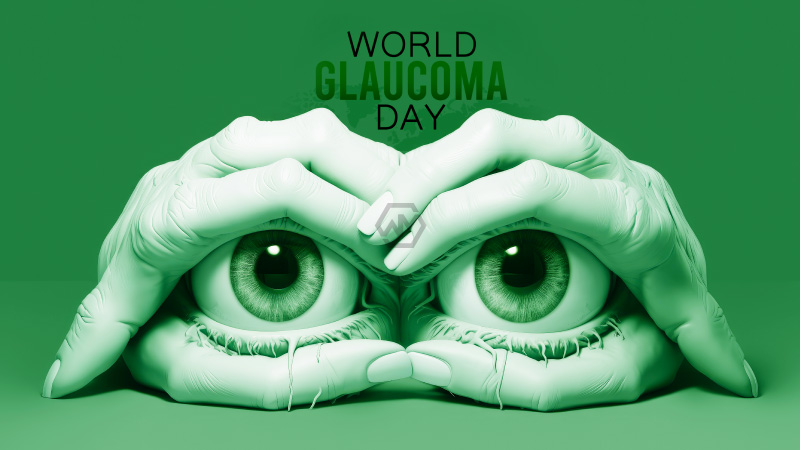- World Glaucoma Week seek to promote public awareness of glaucoma.
- Because glaucoma frequently shows no symptoms in the early stages, it is known as “the silent thief of sight.”
- Maintaining a healthy lifestyle can assist in the management of glaucoma and diabetes.
Global campaigns such as World Glaucoma Day and World Glaucoma Week seek to promote public awareness of glaucoma, a disorder that results in elevated intraocular pressure in the eye, damaging the visual nerve. Because glaucoma frequently shows no symptoms in the early stages, it is known as “the silent thief of sight.”
In addition to being a major risk factor for vision loss, diabetes can harm the optic nerve. All components of the eye, including the blood vessels, cornea, lens, retina, and eyelids, are impacted by diabetes mellitus, which also affects the eye’s pressure. Diabetes that is not under control can cause diabetic retinopathy, which harms retinal blood vessels and may eventually impair the optic nerve.
World Glaucoma Day
Diabetes also raises the chance of developing additional eye diseases, such as dry eyes, macular edema, cataracts, glaucoma, diabetic retinopathy, and glaucoma. If these disorders are not identified and treated, they can all result in vision loss or even blindness.
According to a recent study that was published in the Lancet magazine, there are 2.4 million blind persons and about 21 million visually impaired people in India. The numbers are expected to rise due to the nation’s rising diabetes rates, which pose a serious risk factor for visual loss.
A multidisciplinary strategy including routine medical care, lifestyle changes, and medication regimen adherence is needed to prevent glaucoma. Diabetes patients should keep an eye on their blood sugar levels, take their medications or insulin therapy as prescribed, deal with any issues right once, and get regular eye exams to check the health of their optic nerve and intraocular pressure. Maintaining a healthy lifestyle can assist in the management of glaucoma and diabetes.



